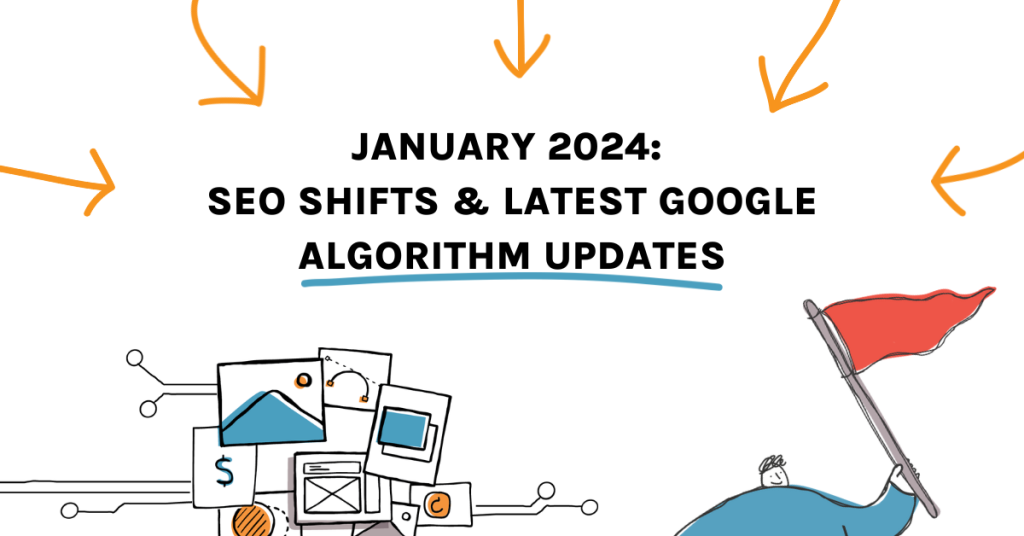
Hi Everyone!
This is Ravi and today, I will let you know, about Search Engine Algorithms and Adapting SEO Strategies.
Introduction
Search engine algorithms are complex systems used by search engines like Google to retrieve data from their index and instantly deliver the best possible results for a query. These algorithms have evolved over the years, significantly impacting how websites are optimized for search engine optimization (SEO). This tutorial provides an in-depth look into the evolution of search engine algorithms, the impact of recent Google algorithm updates on SEO strategies, and how to understand and adapt to algorithm changes in 2024.
The Evolution of Search Engine Algorithms

Definition
Search Engine Algorithms: Sets of rules and calculations used by search engines to rank web pages in search results based on relevance, quality, and various other factors.
Early Days of Search Engines
a. 1990s:
Archie: The first search engine, which indexed FTP files.
Yahoo!: A manually compiled directory of websites.
1998 – Google: Introduced the PageRank algorithm, which used the link structure of the web to determine the importance of web pages.
Key Milestones in Algorithm Evolution
b. 2000s:
Florida Update (2003): Targeted keyword stuffing and manipulative SEO tactics.
Panda (2011): Penalized low-quality content and rewarded high-quality, user-focused content.
Penguin (2012): Focused on eliminating web spam and penalizing sites using manipulative link schemes.
Hummingbird (2013): Improved the understanding of search queries, emphasizing semantic search and user intent.
c. 2010s:
Mobile-Friendly Update (2015): Prioritized mobile-friendly websites.
RankBrain (2015): Integrated machine learning to better understand search queries.
BERT (2019): Enhanced the understanding of natural language and context in search queries.
Recent Updates
d. 2020s:
Core Web Vitals (2021): Focused on user experience metrics like loading performance, interactivity, and visual stability.
Page Experience Update (2021): Combined Core Web Vitals with existing user experience signals like mobile-friendliness and safe browsing.
Helpful Content Update (2022): Emphasized the importance of content created for people rather than search engines.
How Recent Google Algorithm Updates Impact SEO Strategies

a. Core Web Vitals
Definition: A set of specific factors that Google considers important in a webpage’s overall user experience. Core Web Vitals include Largest Contentful Paint (LCP), First Input Delay (FID), and Cumulative Layout Shift (CLS).
Impact on SEO:
LCP: Optimize page loading performance by improving server response times, utilizing efficient coding practices, and optimizing images.
FID: Enhance interactivity by minimizing JavaScript execution times and breaking up long tasks.
CLS: Ensure visual stability by using size attributes for images and ads, avoiding dynamic content shifts.
b. Page Experience Update
Definition: An update that incorporates Core Web Vitals with other user experience factors like mobile-friendliness, safe browsing, HTTPS security, and the absence of intrusive interstitials.
Impact on SEO:
Holistic Approach: Websites need a comprehensive focus on user experience, covering technical, content, and design aspects.
Mobile Optimization: Ensure websites are responsive and provide a seamless experience on all devices.
Security: Implement HTTPS to secure data and protect user privacy.
c. Helpful Content Update
Definition: An update aimed at promoting content that provides genuine value to users, targeting content that is primarily created for search engines rather than human readers.
Impact on SEO:
Content Quality: Prioritize creating in-depth, informative, and engaging content that addresses user needs and queries.
User Intent: Focus on understanding and satisfying the intent behind user searches, providing clear and direct answers.
Understanding and Adapting to Algorithm Changes in 2024

a. Staying Updated
Official Announcements: Follow updates from Google Search Central and other official Google sources.
SEO News Websites: Regularly check reputable SEO news websites such as Search Engine Land, Moz, and Search Engine Journal.
SEO Communities: Engage with online SEO communities on platforms like Reddit, WebmasterWorld, and specialized forums to share insights and updates.
b. Analyzing Impact
Web Analytics: Utilize tools like Google Analytics and Google Search Console to monitor traffic patterns, user behavior, and search performance.
SEO Audits: Conduct regular audits to identify areas of your website affected by algorithm updates and make necessary adjustments.
c. Adapting Strategies
Content Quality: Maintain a focus on high-quality, user-centric content that provides value and answers user queries effectively.
Technical SEO: Ensure your website’s technical foundation is strong, with fast loading times, mobile optimization, and secure protocols.
User Experience: Enhance user experience through intuitive navigation, engaging design, and a seamless user journey.
Backlink Profile: Build and sustain a high-quality backlink profile by earning links from reputable, relevant websites.
Semantic SEO: Optimize for semantic search by understanding user intent, utilizing structured data, and providing contextually relevant content.
d. Proactive Measures
Continuous Learning: Stay current with the latest SEO trends, tools, and best practices through courses, webinars, and industry events.
Experimentation: Regularly test different SEO strategies and analyze the results to determine what works best for your site.
Adaptability: Be prepared to pivot your SEO strategies based on the latest algorithm updates and changes in user behavior.
Conclusion
The evolution of search engine algorithms has significantly shaped the SEO landscape. By understanding the history and impact of these changes, staying informed about recent updates, and adapting your strategies accordingly, you can ensure your website remains competitive in search engine rankings. Embrace the continuous learning process and be ready to adjust your approach as search engine algorithms evolve, especially in the dynamic landscape of 2024 and beyond.
Thanks!